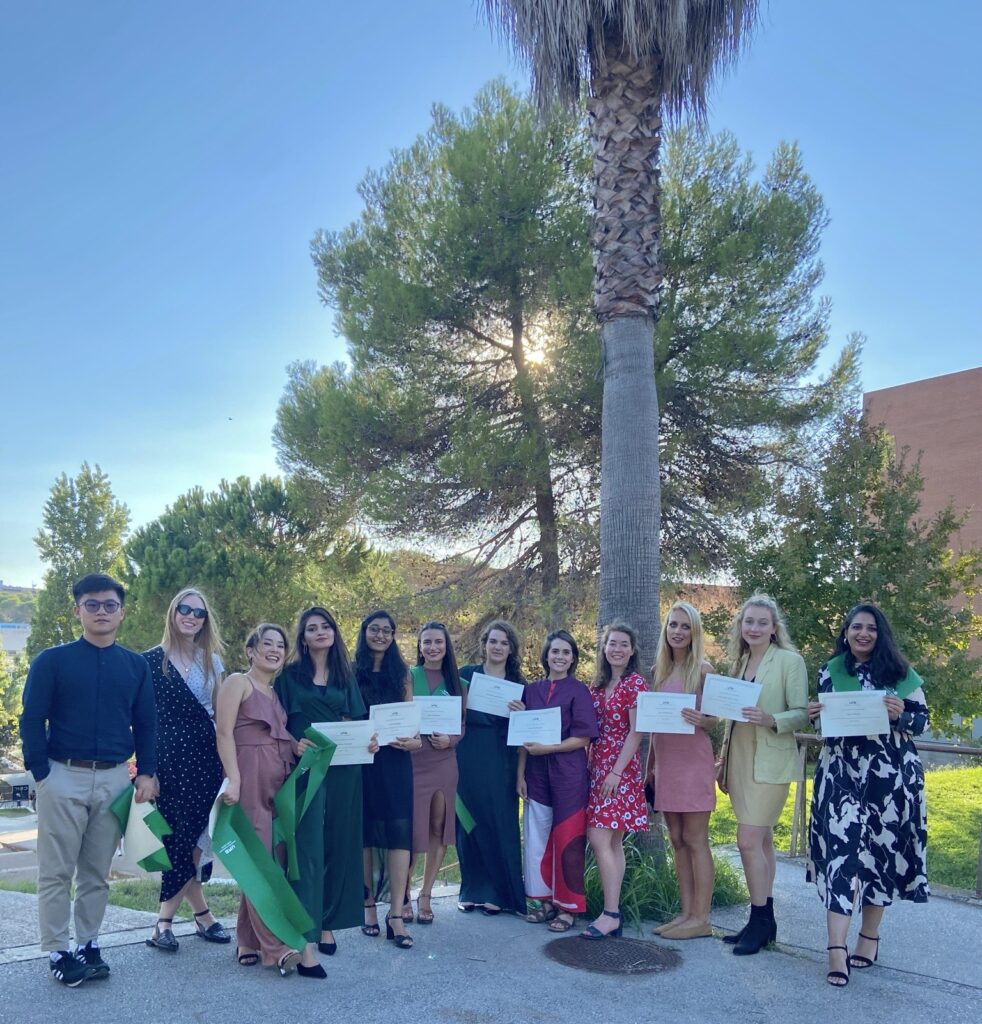Bona tarda, good afternoon (dean, students, families and friends, colleagues from the Fac of Pol Sc and Sociology).
Welcome to this graduation ceremony, a ceremony that is more important than ever and that, as we will try to argue in this speech, has acquired new symbolism and meaning in the context of the ongoing health crisis.
Covid-19 has disrupted and interrupted academic activity as we knew it, and in many ways: teaching and learning, meeting other students, fleeting exchanges in the corridors, attending conferences, etc. These are all activities that have moved from the physical world to digital platforms, or that have simply lost its centrality in our everyday life. All these changes I am describing have affected the whole academic community, but especially students. In the case of most GLOBED students, that used to spend at least 3 months in the field gathering data, the pandemic has also meant having to do fieldwork at a distance, and from their desks, with all the implications this has.
Dimitris Xygalatas, a Professor in Anthropology at the University of Connecticut, wrote in the Conversation that, despite all the profound transformations that his students experienced with the pandemic and the lockdown, the first thing they wanted to know was: “Professor, are we going to be able to have a graduation ceremony?”
Why this fixation with a graduation ceremony, a particular event that is so short and specific in time? Dimitris, as an anthropologist, is perfectly aware of the fact that the most important moments of our lives are marked by ceremonies and rituals. Interestingly, in his piece in the Conversation, he reflects on the fact that, in all types of cultures and societies, rituals intensify in times of uncertainty and crises. Stressful events such as wars, conflict, environmental catastrophes or a health crises, as the one we are going through, are linked with spikes in ritual activity. Rituals are highly structured, rituals are predictable. Rituals provide a sense of control by imposing order on the uncertaintly of everyday life – uncertainty that has more than intensified in the context the global pandeimc.
However, rituals are not only a response to anxiety, they are also a source of connection. Rituals forge a sense of belonging and common identity and, by doing so, transform individual lifes into more cohesive communities.
The Korean philosopher Byung-Chul Han, in his recent and acclaimed book The Disappearance of Rituals, considers that neoliberalism, narcissism and consumerism are challenging community values. Neoliberalism triggers what he considers the intensification of connections and communication, but without community; and rituals are a tool to overcome this tendency. For us, in fact, doing this graduation ceremony today, despite the risks, constrains and technical difficulties, is a way to struggle against the isolation many of you have gone through in this period, and a form to generate genuine forms of communication among us.
Byung-Chul Han also argues that rituals shape the transitions of life’s phases, opening magical thresholds that take us to unknown places
With today’s ritual, you formally graduate, and you will transition to PhD studies, the professional world, or towards a deserved sabbatical, who knows. With today’s graduation, you also close a very unusual period in your learning trajectory, that has brought frustration but also the acquisition of new skills, new ways of learning, new ways of understanding the world. The manner in which you have adapted to the new situation is admirable.
In the name of all the GLOBED staff, we want to congratulate you and thank you for the additional effort that has meant conducting your research in the context of a pandemic, and wish you all the best in this new stage.
Antoni Verger and Xavier Bonal
Bellaterra, September 17 2021

